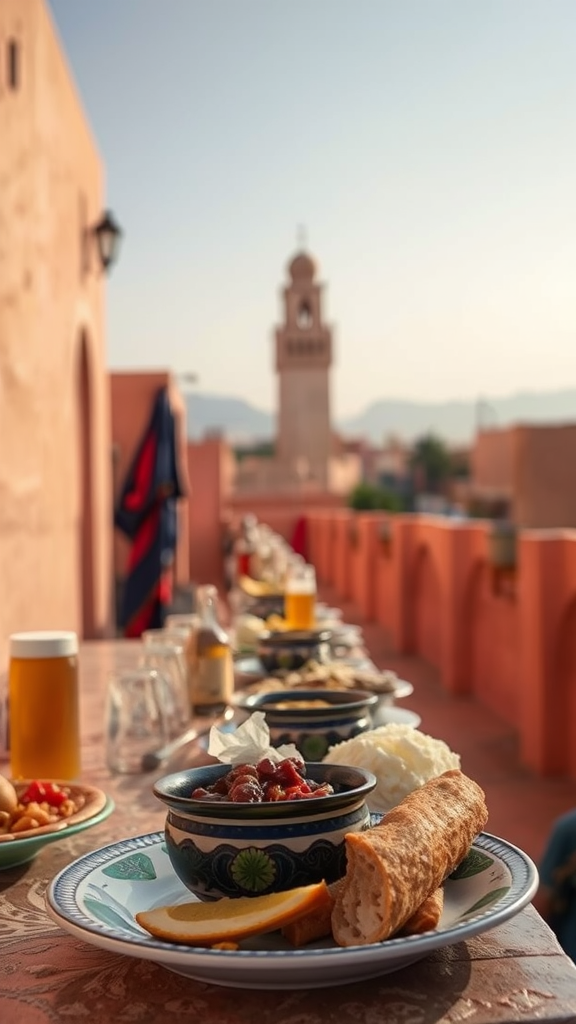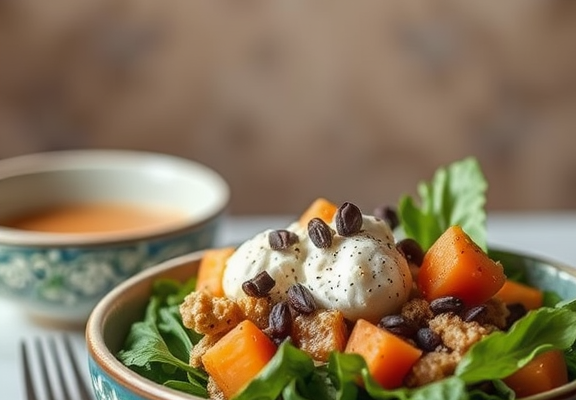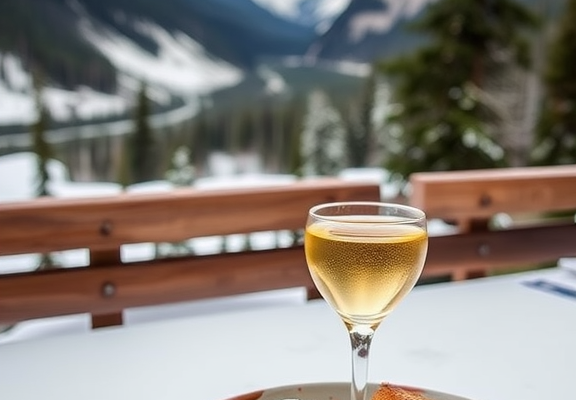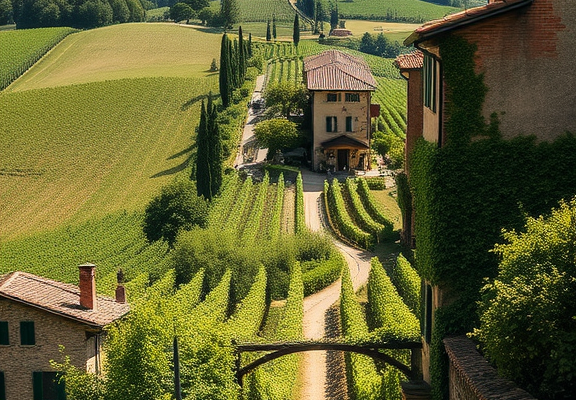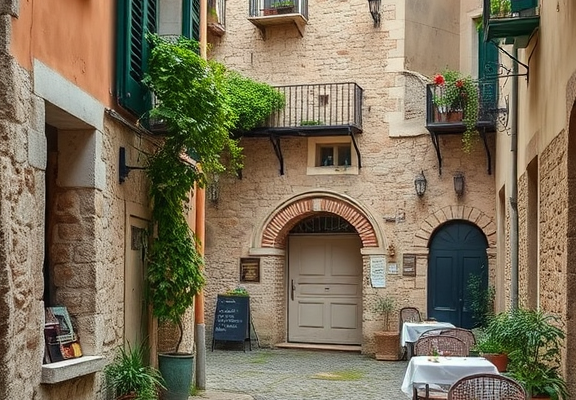Exploring Traditional Moroccan Cuisine: A Journey Through Flavors and Ingredients
Stepping into the vibrant world of Moroccan cuisine is like taking a journey through a treasure trove of flavors and aromas. Each dish tells a story, rich with history and culture. From the bustling souks of Marrakech to the quiet mountain villages, culinary experiences in Morocco are as diverse as the landscape itself. As you explore this extraordinary cuisine, your palate will encounter a remarkable blend of spices, fresh ingredients, and traditional cooking techniques.
Thank you for reading this post, don't forget to subscribe!At the heart of Moroccan food are spices. The combination of flavors can be tantalizing. It’s common to find a range of spices like cumin, coriander, cinnamon, and saffron prominently featured in various dishes. Spices do not just add taste; they also reflect the country’s history of trade and cultural exchange.
Essential Moroccan Ingredients include:
- Olive Oil: A staple in Moroccan kitchens, used in much of the cooking.
- Mint: Essential for dishes and tea, providing fresh, aromatic notes.
- Couscous: Often considered the national dish, it is versatile and served with various meats and vegetables.
- Chickpeas: Commonly used in stews and salads, adding protein and texture.
- Dried Fruits: Such as apricots and raisins, which add sweetness to savory dishes.
One cannot talk about Moroccan cuisine without mentioning tagine. This slow-cooked stew is named after the earthenware pot in which it is cooked. A typical tagine combines meats (like lamb, chicken, or beef) with vegetables and aromatic spices, creating a dish that’s both hearty and flavorful. The slow cooking process allows all the ingredients to meld beautifully, producing a rich sauce that you won’t want to leave behind. When paired with Moroccan bread, it becomes a complete meal that showcases the essence of culinary togetherness.
Another standout is the famous Moroccan mint tea, often referred to as “Moroccan whiskey.” This sweet, refreshing drink is a symbol of hospitality. When guests arrive, pouring the tea is a traditional ritual that signifies welcome and friendship. The preparation involves a delightful process of pouring from a height, creating a frothy top, which you can enjoy while taking in the vibrant surroundings of a Moroccan home.
Street food is another vital aspect of exploring Moroccan cuisine. As you stroll through the lively markets, don’t miss out on tasting the local delights. Savor delicious msemen (layered Moroccan pancakes) served with honey, or try the iconic harira, a soup made from tomatoes, chickpeas, and lamb, especially popular during Ramadan. Eating street food offers you an authentic taste of Morocco, prepared right in front of you by local vendors with years of experience.
As you delve deeper into the culinary landscape, you’ll discover the significance of festivals and special occasions in Moroccan cuisine. Celebrations often center around food, with meals that can last for hours. During these festivities, dishes like mechoui (whole roasted lamb) take the spotlight, showcasing Moroccan hospitality. The festive food is not just about nourishing the body, but also about bringing people together. Sharing a meal creates bonds, and Moroccan cuisine is designed to be enjoyed collectively.
Vegetarian Options:
- Vegetable Tagine: A medley of seasonal vegetables flavored with spices.
- Couscous with Seven Vegetables: A classic dish often served during special occasions.
- Salads: Moroccan salads are a vibrant mix of cooked and raw vegetables, often seasoned with lemon and olive oil.
Exploring traditional Moroccan cuisine is not just about food—it’s about the experience and the stories behind each dish. Whether you are at a family gathering or sharing a meal in a bustling café, you will feel the warmth of Moroccan culture through its culinary traditions. Every bite you take connects you not only to the flavors of the dish but also to the heart of Morocco itself.
So, next time you have the opportunity, immerse yourself in the rich culinary heritage of Morocco. Make it a point to taste, savor, and celebrate the exquisite flavors that await you. Whether you’re dining in a restaurant or enjoying a homemade meal, let the journey unfold with every delightful dish you explore.
The Role of Food in Moroccan Culture and Hospitality
In Morocco, food is much more than just sustenance; it plays a vital role in the culture and hospitality that the country is renowned for. Whether you are a traveler visiting the bustling medinas or a local enjoying a family meal, food shapes experiences and facilitates connections among people. Traditional Moroccan dishes have deep historical roots, reflecting a blend of Berber, Arabic, and Mediterranean influences. This diverse culinary heritage invites you to explore flavors that are unique to this beautiful North African nation.
Sharing a meal is an act that embodies warmth and generosity in Moroccan culture. Guests are often invited into homes and treated to a feast as a gesture of hospitality. As you enter a Moroccan home, it’s common for a host to welcome you with mint tea—a symbol of friendship. The act of pouring tea is ceremonial, often accompanied by small pastries or nuts. This ritual not only softens the atmosphere but also sets the stage for what’s to come: a meal filled with love and tradition.
Traditional Moroccan meals are often served in a communal style. Families gather around a large dish, typically a tajine, which consists of slow-cooked meats paired with a variety of vegetables and spices. Eating from a shared plate encourages closeness, making each bite a collective experience. You will likely notice that many dishes feature aromatic spices such as cumin, coriander, and saffron, which not only enhance the flavors but also mirror the country’s rich cultural tapestry.
Among the iconic dishes you must try is the famous couscous. This staple food is often served during special occasions and family gatherings, showcasing the prominence of grains in Moroccan diets. Couscous is usually topped with a medley of vegetables and meat, and its preparation can be an elaborate process, often involving multiple steps that bring families together in the kitchen. Participating in this cooking process can help you appreciate the significance of each ingredient and technique used, making it a delightful learning experience.
Street food also plays an essential role in understanding Moroccan culinary culture. When strolling through local markets or bustling squares, you will encounter a variety of snacks and dishes that tell you more about the urban lifestyle. Consider sampling:
- Grilled Kebabs: Skewered meats seasoned to perfection, hot off the grill.
- Harira: A hearty soup made with tomatoes, lentils, and chickpeas, typically enjoyed during Ramadan.
- Pastilla: A savory pie filled with pigeon or chicken, layered with almonds and spices, and dusted with powdered sugar.
- Mint Tea: Sweet and refreshing, this tea is a staple at any gathering.
Each of these street food options not only provides you with a delicious bite but also a glimpse into everyday life in Morocco. With vendors preparing food openly seems to create a sharing ambiance that encourages community interaction, where people gather, converse, and enjoy their meals together.
Mealtime in Morocco is a delightful experience steeped in rituals and etiquette. When eating, it’s customary to use your right hand, as the left hand is considered less clean. Observing these cultural practices while dining enhances your appreciation and respect for Moroccan customs. It’s also common to forgo utensils entirely, emphasizing the tactile connection individuals have with their meals.
In addition to meals, sweets hold a significant place in Moroccan hospitality. Desserts like baklava or kaab el ghazal (gazelle horns) showcase the fusion of flavors through their delicate pastries and unique fillings. Enjoying these sweets, often paired with Moroccan tea, reflects the warmth of Moroccan culture and the joy of celebrating life’s little pleasures.
No matter where you find yourself in Morocco, food will inevitably play a central role in your interactions and experiences. From elaborate family dinners to quick bites at bustling markets, the various flavors and traditions connected to food will create lasting memories. You will leave Morocco not just with a full stomach but also with a deeper understanding of its hospitable spirit and rich cultural heritage, making each culinary experience uniquely meaningful.
Conclusion
As you delve into the vibrant world of Moroccan cuisine, you will uncover a rich tapestry of flavors and ingredients that tell a story of heritage and tradition. Each dish is meticulously prepared, reflecting not only the diverse landscapes of Morocco but also the cultural influences that have come together over centuries. From the aromatic spices of cumin and saffron to the sweetness of dried fruits, the culinary experiences here are as varied as the country itself.
Equally important is the role that food plays in Moroccan culture, where hospitality is a cherished value. Sharing a meal is more than just eating; it’s an invitation to connect, celebrate, and forge bonds. Whether it’s a family gathering or a festive occasion, the act of dining brings people together, creating cherished memories that last a lifetime.
Exploring traditional Moroccan cuisine is an immersive experience that goes beyond the palate. It offers insight into the heart of Moroccan life, showcasing how food acts as a bridge between people and their traditions. Embracing this culinary adventure allows you to appreciate not only the unique flavors but also the deep sense of community and welcome inherent in Moroccan hospitality. Each bite of tagine or morsel of couscous carries with it a warmth and connection that is truly special. So, the next time you savor Moroccan dishes, remember that you are partaking in a rich cultural legacy, a celebration of flavors intertwined with the values of togetherness and generosity.

